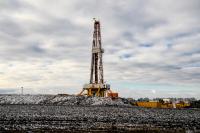为了摆脱石油和天然气,发展中国家需要“公正过渡”来保护工人和社区
To Shift Away from Oil and Gas, Developing Countries Need a ‘Just Transition’ to Protect Workers and Communities

【关键词】 Climate ; climate policy ; Climate Governance ; greenhouse gases ; climatewatch-pinned ; COP28 ;
The phrase “major oil and gas producer” may conjure images of oil and gas wells in Texas or Saudi Arabia. However, about half of the world’s oil and gas is produced by middle-income developing countries, which the World Bank defines as those with annual per capita gross national income between $1,036 and $12,535. These nations are economically dependent on the highly volatile prices of oil and gas but have fewer resources than rich countries to deal with the global transition away from fossil fuels that will help prevent the most dangerous impacts of climate change.
,Based on current combined climate pledges the world is on track for 2.5 degrees C (4.5 degrees F) global warming by 2100, and demand for oil and gas has yet to fall. However, as part of an effort to achieve net zero emissions and meet the 1.5C (2.7 degrees F) temperature goal, the International Energy Agency’s 2022 World Energy Outlook estimates that oil demand could decrease over the next three decades from 95 million barrels per day to less than 25 million barrels a day. During the same period, natural gas demand is estimated to drop from 4,200 billion to 1,200 billion cubic meters. At the same time insistence from vulnerable countries and others to cut dependence on fossil fuels to avoid catastrophic global warming continues.
相关资源